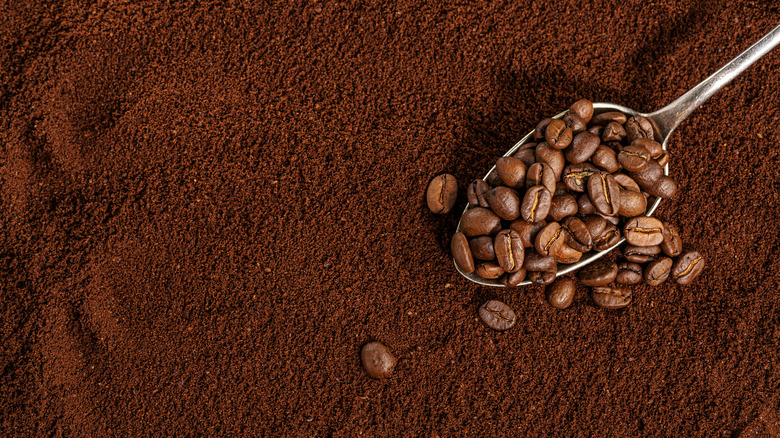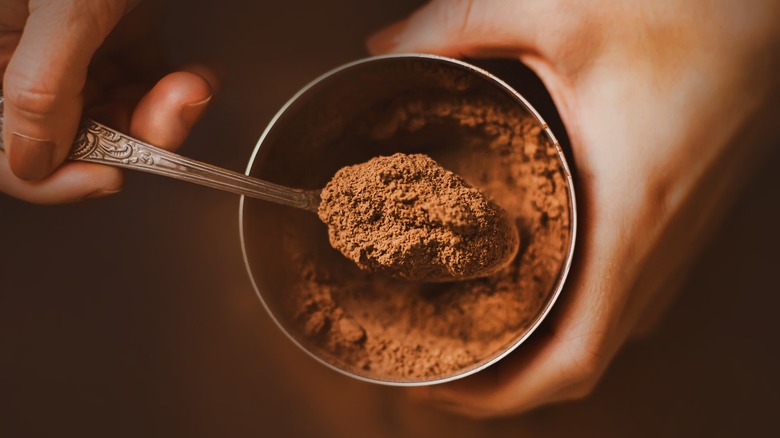Does Your Bag Of Ground Coffee Really Have Mold In It?
No matter what types of coffee you enjoy, no one wants to worry if their coffee contains mold or not. It isn't something most people want to imagine first thing in the morning, let alone about their cup of coffee. But it may be something to consider. After all, mold thrives in humid and warm environments, similar to the tropical environments in which coffee beans are grown. Coffee beans also need a generous amount of water to remove the seeds' outer walls, the moist result of which is stored in fibrous sacks to dry. All these conditions can make it ripe for mold to grow in coffee beans before it ever makes it to your table.
The National Library of Medicine recommends both "good manufacturing practices and hygiene throughout the coffee production and processing chain" to reduce potential mold contamination of coffee beans. Despite that, mycotoxins, the byproduct of mold, are still present in many retail coffee beans. According to a study by the organization, around 45% of commercial coffee contained a mycotoxin called ochratoxin A.
So to answer the question "Is there mold in a bag of coffee grounds?", the answer is probably yes, albeit not as much as you may think. In fact, you've probably consumed mycotoxins before and just went about your day as normal.
Regulations keep coffee safe for consumers
In an interview with Well and Good, food scientist Natalie Alibrandi said, "The levels of mold in coffee are such a small quantity that they do not cause much concern." Plus, mycotoxins are present in a lot more than just coffee. Mycotoxins are naturally occurring toxins that can be found in all kinds of food including cereals, nuts, and dried fruits. Mycotoxins in food are certainly concerning, as they have been shown to have a plethora of negative effects on the human body in large doses, according to the World Health Organization. However, the organization in partnership with others recommends regulations to keep the percentage of mycotoxins in food low.
As for coffee grounds sold in groceries and stores, they're unlikely to give you a mold-infested malady. Organizations such as the U.S. Food & Drug Administration thoroughly inspect manufactured coffees for excessive amounts of mycotoxin to ensure it's safe for the masses.
To prevent mold from growing in your coffee grounds at home, keep the humidity in your house low and the environment clean. Always buy coffee from reputable sources, and don't cheap out. Check expiration dates as well, because the closer coffee is to expiring, the more time mold has to form. Remember, improperly stored food can grow mold in as little as 24 hours, in the right conditions. Coffee is a wonderful energy booster, but it's important to expend a bit of that energy to make sure you're mold-free.

